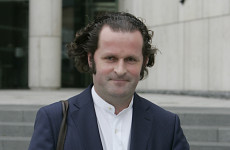Opinion
New hope for Huntington’s families as gene therapy shows remarkable results

Read more on post.

A company called uniQure has announced promising results from a trial of a new gene therapy for Huntington’s disease. The news has spread quickly through families affected by this condition, who have been desperately waiting for a treatment that can stop or slow down this devastating illness.
Huntington’s disease is a fatal brain disorder that runs in families, caused by a faulty gene that produces a protein called huntingtin. The disease typically begins to cause symptoms in people between 30 and 50 years old.
People with the condition experience problems with movement, thinking abilities and mental health. The disease gets worse over time and typically leads to death about 20 years after symptoms first appear.
In this study, neurosurgeons delivered the treatment called AMT-130 directly into the brain using precise surgery guided by MRI scans. They targeted the striatum – the brain region most damaged by Huntington’s disease.
The treatment requires a single injection delivered during a complex 12- to 20-hour brain operation, which means it will probably be expensive.
AMT-130 uses a modified virus to carry genetic material that can reduce the amount of harmful huntingtin protein in brain cells. Scientists believe this faulty protein plays a key role in causing the disease.
The results showed that patients who received the high dose of AMT-130 (12 people) experienced significant benefits. The treatment appeared to slow disease progression by 75% over 36 months, compared with a carefully matched group of patients who didn’t receive the therapy and were from another study that investigates how the disease develops over time.
Disease progression was measured using a standard scale that tracks movement problems and thinking abilities in Huntington’s disease patients.
The high-dose treatment also showed benefits on another scale that measures how well people can carry out daily activities. Additionally, levels of neurofilament – a substance that indicates brain cell damage – decreased in patients’ spinal fluid after 36 months.
Crucially, the treatment appeared to be safe, and patients tolerated it well. UniQure plans to apply for approval from US regulators in early 2026.
There is an urgent need for treatments that can change the course of Huntington’s disease. Several clinical trials are currently testing ways to target huntingtin and other factors involved in the disease.
Some previous trials have had to be stopped early because of dangerous side-effects, so it’s particularly encouraging that AMT-130 appears safe.
Results need careful interpretation
However, these positive results need to be viewed with some caution. Only 12 patients received the high dose, which is a small number.
Comparing results to an external control group doesn’t account for the placebo effect – the improvement some patients experience simply from believing they’re receiving treatment. There might also be differences in how symptoms are rated between observational studies and treatment trials.
The company hasn’t yet presented results from more objective measures like brain scans or precise movement tests, and the findings have not been independently reviewed by other scientists.
The results show that this method of delivering gene therapy to the brain appears safe, which strengthens the potential for similar treatments – not only for Huntington’s disease but for other brain conditions.
The positive AMT-130 results have certainly created optimism and raised hope among many families living with Huntington’s disease.
Hope is vital for coping with the daily challenges this condition brings. This study, alongside other research happening worldwide, demonstrates the dedication and hard work of the Huntington’s disease community in their fight for new and effective treatments.











